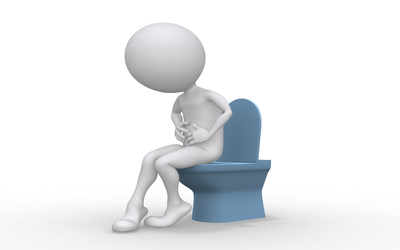IBS: Could It be Affecting Your Lifestyle?
The cause of Irritable Bowel Syndrome is not known, but many people suffer with this gut condition. The symptoms vary but tend to include bloating, abdominal pain, and even constipation or diarrhoea. These come and go though. You can’t be cured of IBS, but there are ways to ease your symptoms such as taking medication or from avoiding foods which make it worse. IBS is considered a functional disorder, which means that there is a problem with part of the body and the way it functions, but nothing wrong with the structure of the organ itself.
One in five people in the UK have IBS at some stage in their life, and it can affect anyone at any age. It’s common in young people and teens though, and it twice as common in women than men. Pain and discomfort are common and will probably vary in where the symptoms originates. This is because it usually goes away when you pass stools or wind. Most people with IBS state that their pains feel colicky or like spasms, and the severity can vary both between people and depending on the time itself. Bloating is also a common symptom of IBS, and you may find that you pass wind more than usual. Other people complain of nausea, headache, poor appetite, tiredness, muscle pains, heartburn and bladder symptoms.
There are no specific tests but you may be asked to come in for a Full blood count blood test to rule out anaemia, as this is connected with some other gut disorders, and a CRP test to show if there is any inflammation in the body. There are more complex tests such as an endoscopy which examines the bowel with a specially designed telescope, but this is rarely needed. It’s not clear what actually causes IBS, and researchers have little evidence to support any previous theories. The most common through is that it is connected to over-activity in the gut, which occurs when the contractions in the intestines become abnormal or overactive – this is when constipation or diarrhoea may develop.
Stress or emotional turmoil play a big part in the role of the gut, so people with IBS may find that their symptoms become worse when they’re stressed or anxious. Foods are also a trigger, so it may be beneficial to keep a food diary to keep track of any ingredients which lead to a worse bout of IBS. Another cause may be an infection which can trigger it – around one in six cases of IBS are the follow-up to a bout of gastroenteritis, although the condition isn’t caused by an infection. Understanding IBS and how it works can help you manage the condition more easily, and reduce symptoms in some cases. If your symptoms are mild, it may be possible to maintain them purely by making lifestyle changes. However, if they’re more serious then you may require medication.
For natural treatments, fibre is a good place to start. This nutrient is a vital part of a healthy diet anyway, but where bowels are concerned it takes on an even more important role. You can get roughage from fruit, vegetables and whole grains. A healthy diet on the whole can keep your body functioning on top form, so it’s advised that you ditch the junk food and sugar in place of a more nutritiously-beneficial diet. This means eating regular meals and taking your time to digest them, drinking plenty of water to hydrate the body and aid digestion, and restrict tea and coffee as caffeine can be a trigger for some people. Alcohol should be limited, as it can cause bloating which can make your symptoms worse, as can fizzy drinks.

Comments are closed.